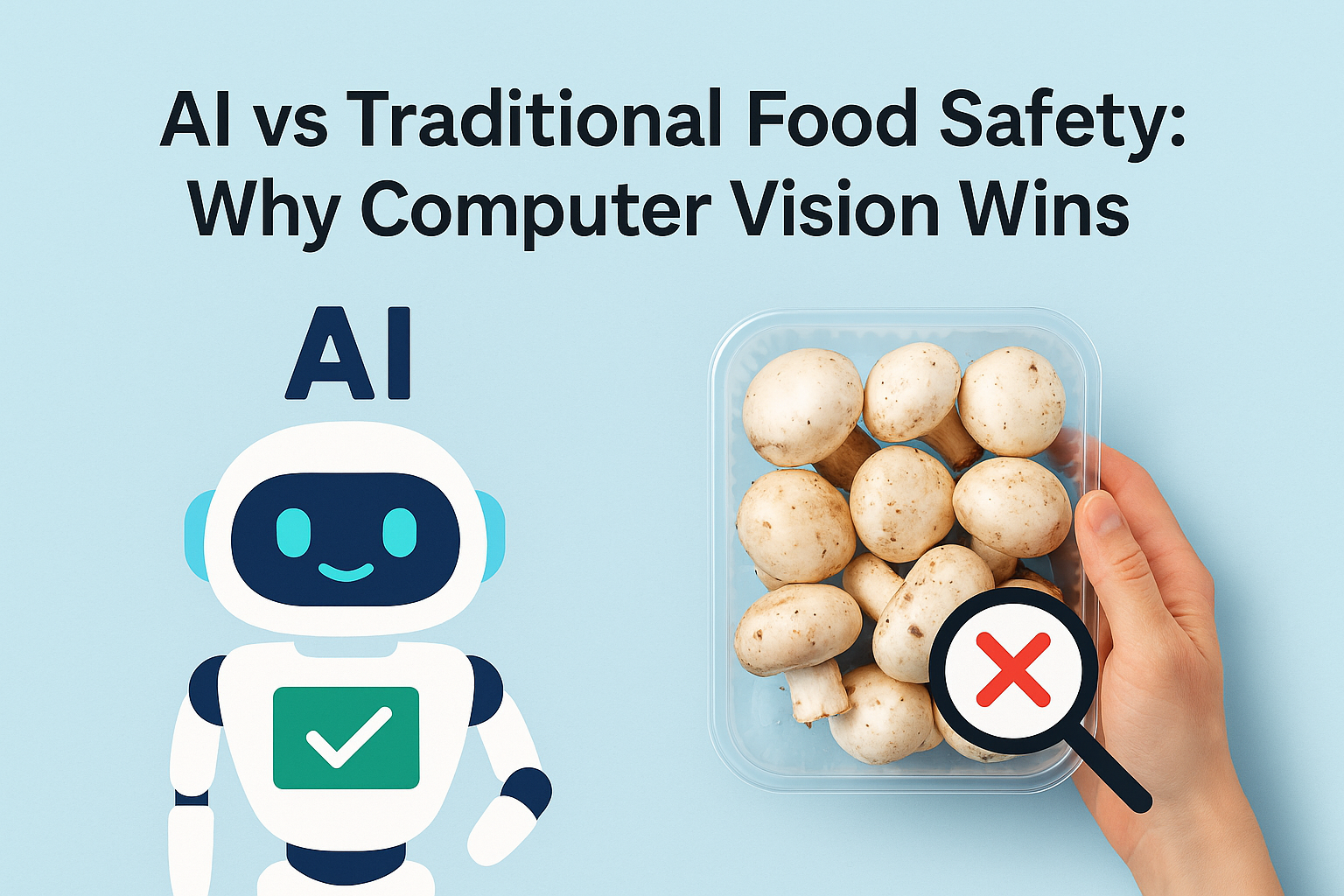Can I Eat Expired Milk? 🤔
Check if your food is still safe to eat. Get expert guidance on expiration dates, storage tips, and signs of spoilage.
Use your camera or upload a photo to quickly identify a food and get instant safety info. Powered by AI.
Popular Searches
Find detailed food safety information organized by category
Latest Blogs

AI vs Traditional Food Safety: Why Computer Vision Wins
Still relying on "smell tests" or guessing when food has gone bad? In this post, we explore how AI-powered food scanners are changing the way we handle food safety at home. Learn why computer vision and real-time analysis outperform outdated methods like expiration dates and text articles. Discover how our AI food scanner detects spoilage, reduces waste, and gives you instant answers — all from a simple photo. Say goodbye to the guessing game and hello to smarter, safer food decisions.
Read more →
The Dangers of Eating Expired Flaxseed
In recent years, flaxseed has gained popularity as a superfood packed with nutrients and health benefits. Rich in omega-3 fatty acids, fiber, and antioxidants,
Read more →
The Truth About Soy Sauce Expiration: How Long Does Soy Sauce Last?
Soy sauce is a staple condiment in many kitchens, adding depth and umami flavor to a variety of dishes. But have you ever wondered about the shelf life of soy s
Read more →🍽️Explore Food Categories
Find detailed food safety information organized by category
Understanding Expiration Dates
Learn the difference between food safety and food quality. Our guide explains expiration, best-by, and use-by dates so you can make informed decisions and avoid unnecessary waste.
Covers: Dairy, meat, produce, canned goods & more.
Food Safety Guidelines
- 🌡️ Proper storage temperatures
- 👀 Spoilage signs to watch for
- 👐 Safe handling practices
- ⏳ Extending shelf life
- ⚠️ Risk levels for expired foods
Expert-backed, easy to follow.
Reduce Food Waste
1/3 of food is wasted globally. Many foods are safe past their best-by date. Use our guides to waste less and stay safe.
Better for your health & the planet.
❓Frequently Asked Questions
🕵️How do I know if food is safe to eat after its expiration date?
📅What's the difference between "best by," "use by," and "sell by" dates?
🧊How can I extend food shelf life?
🚫When should I definitely throw food away?
🤖How does the AI scanner work exactly?
📚How did you gather all this information about food safety?
Food Storage Essentials We Love
Products that help you store and preserve your food better
Disclosure: As an Amazon Associate, we earn from qualifying purchases. This helps support our site and allows us to continue providing free food safety information.




